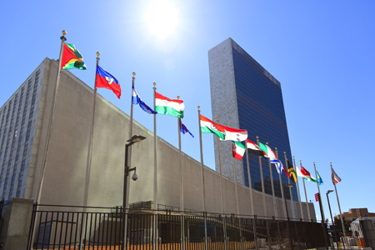Thoughts And Themes From The UN Water Conference

By Kevin Westerling,
@KevinOnWater

The UN 2023 Water Conference, one of the most significant water events of this or any year, was held March 22-24 at UN Headquarters in New York, co-hosted by the Kingdom of the Netherlands and the Republic of Tajikistan, with online attendance from around the world pushing attendance to 10,000. During the conference, more than 700 commitments to “driving transformation from a global water crisis to a water-secure world” were made as part of the Water Action Agenda — what the UN called its “key outcome.”
A tally of the commitments, including a pledge by the U.S. of up to $49 billion to support climate-resilient water and sanitation infrastructure and services, is cataloged here.
One of those in attendance was Mark Smith, strategic business development director for the water sector at environmental consultancy RSK. Smith, the former chief executive of the UK's Water Research Group and current chair of the Future Water Association, has spent the past 32 years advising the UK and global water industries on water processing. As a wastewater engineer, he worked on water projects in the U.S., South America, the Middle East, and Asia, so he has firsthand understanding of the global water issues the conference seeks to address: to urgently tackle the water crisis and set the world back on track to achieving Sustainable Development Goal 6 – On Clean Water and Sanitation.
Here are his thoughts on several key themes from the conference.
On climate change and the water crisis:

- "People across the globe are now experiencing climate change as a water crisis. Whether it’s floods, droughts or storms, global warming changes water. So, it’s not right to treat water as somehow separate from climate change."
- "There is a water crisis, but the planet is not running out of water. What we have is a clean water access problem, and this problem is growing globally. In most parts of the world there is sufficient water, but it’s often polluted and unusable."
On drought in East Africa:
- "For many low-income communities worldwide — including those in drought-hit East Africa — there is a high reliance on groundwater. Groundwater reserves are pumped and depleted during drought, but not replenished during floods. Instead, continued pumping removes more groundwater. This means the water table goes down and the water becomes dirtier. Eventually, the water is no longer drinkable, life becomes unsustainable, and this can ultimately cause mass migration."
- "In East Africa, models for tapping into groundwater reserves are hopelessly outdated due to climate change. New modeling of how to adapt to the changing water cycle could shift the focus to getting the water resources recharged, so when rain does come it doesn’t just run off the land but goes into the ground and is available in boreholes."
- "The big issue is over-extraction and poor maintenance of water reserves. People frame it as a water shortage when it’s a water governance issue."
On wetland regeneration:
- "We've destroyed ecosystems — as the UN Secretary General said — and in particular we've destroyed wetlands. Wetlands are the key to local water cycles, and it's in wetlands that most of our natural water sources have been eroded. We urgently need to regenerate wetlands. These include mangrove swamps in the Middle East and wetlands in East Africa."
- "Low-tech solutions that can be operated within the community can restore wetlands. The international community needs to support low tech solutions in developing countries, such as maintaining or fixing local water purification infrastructure."
On Western financing:
- "We in the West are still dismissive of water when we decide what we're going to do on infrastructure, both in our own countries and when water comes onto the agenda as part of international infrastructure construction projects."
- "All too often, Western financing does not lead to sustainable local solutions. Western investment tends to go into developing large water infrastructure, but not enough focus is given to their future operation. We have particularly seen this in South America, where a lot of money has been spent on building water infrastructure that often breaks down after two years. This is because the equipment needed to maintain water infrastructure is very expensive, and local communities often don't necessarily have the resources to maintain infrastructure."
- "Western developers need to work much more closely with local communities so that local people become the experts in their water treatment plants, and if something breaks down, they aren’t in a situation where they can't get a part because the part was made in Europe. Local communities need to understand and take ownership of the capture, treatment, storage, and disinfection of their water, and to understand their local water cycles."
